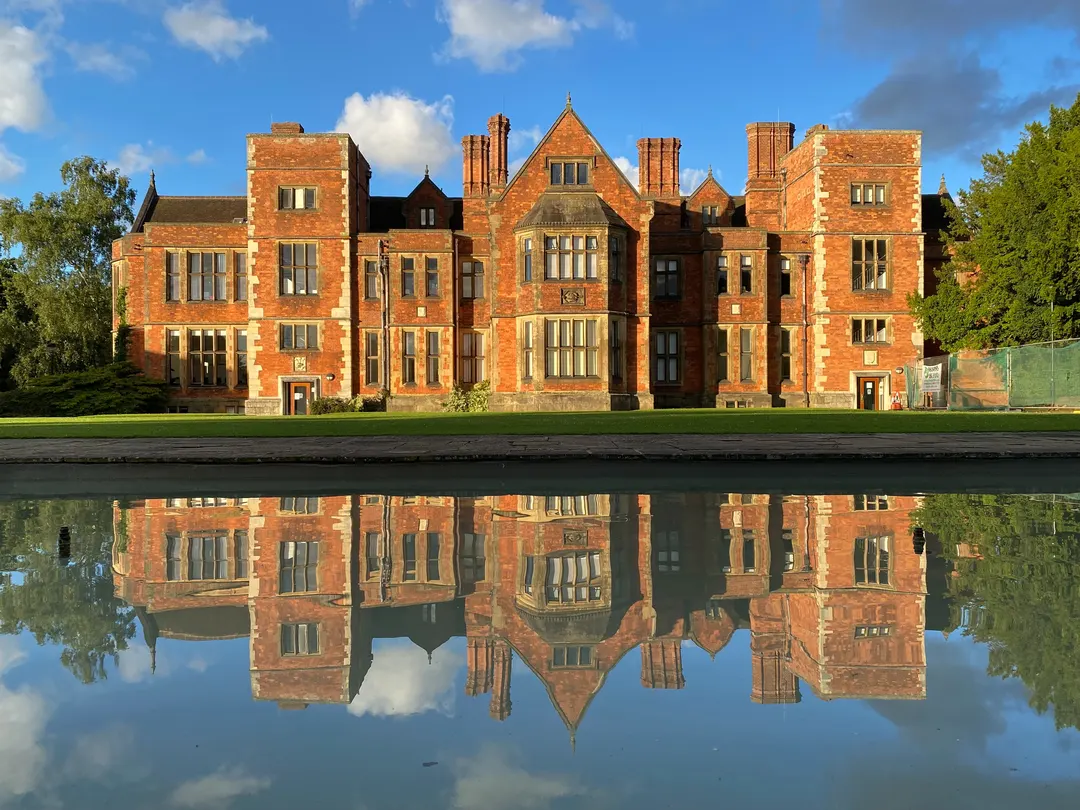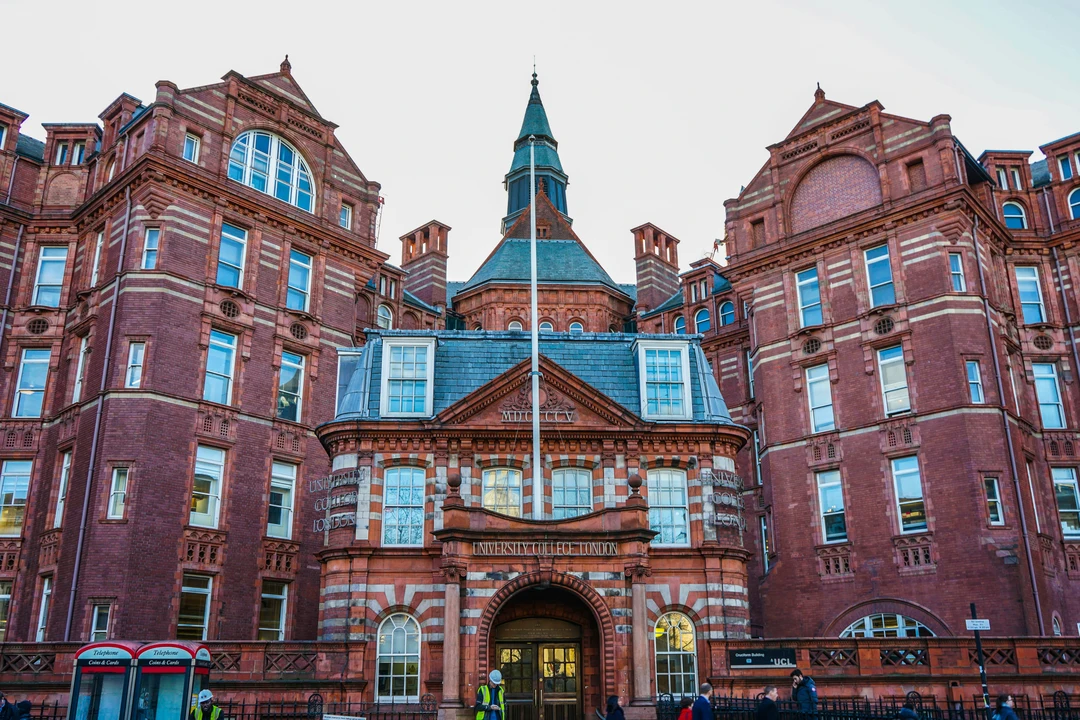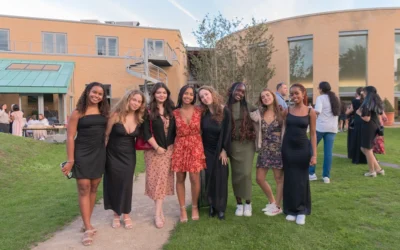15 Best UK Universities for English

The evolution of chatbots like OpenAI’s ChatGPT, has made it increasingly difficult for us to distinguish between the human-written word and the artificially-generated word. As impressive as these developments are, it’s perhaps more important than ever to study the words brought to life by human consciousness.
With this in mind, it’s a unique and exciting time for students hoping to study literature, or pursue a degree in English. Whether you prefer the classics or the contemporaries, a theoretical approach or an interdisciplinary style, we’ve put together a guide to help you choose the best university for English – for you!
Why is Choosing the Right University Important for English Students?
In the UK alone, there are dozens of well-respected and high-quality English undergraduate programmes, each with their own specialisations, modules and texts, but choosing which one is right for you can be a tough task.
English is a vast subject with breadth and depth, so it’s important to choose a programme that caters to your particular interests and research goals. That’s why we’ve hand-picked a diverse range of the very best UK universities for English!
How Do I Choose a University for English?
When it comes to choosing a university, it’s important to reflect on what you want from your degree programme. You might have a particular area of interest you’d like to study, or a very specific goal for after graduation. Either way, it’s important to choose a degree that’s well-suited to you and your unique academic journey.
Equally, don’t worry if you don’t have a clear sense of exactly what you want from your English degree; staying open minded is just as helpful when it comes to researching the ins and outs of your future degree!
I. Programme specialisation
There are a few different types of English degrees, and although the differences can sometimes seem slight, they can have a big impact on the knowledge and skills you graduate with.
English Literature
An English Literature degree primarily focuses on the close-reading and analysis of poetry, prose and many things besides (including cinema and visual arts).
English Literature graduates develop an assortment of transferable skills like communication, critical thinking and information synthesis. These are highly valuable and applicable to a wide variety of industries, including marketing and publishing.
English Language and Linguistics
An English Language or Linguistics degree focuses on the hidden depths of language – all its quirks, clauses and conjunctions!
Language and Linguistics students develop excellent analytical, research and cross-cultural communication skills, often leading to careers in, among other things, translation, editing and academia.
Creative Writing
A Creative Writing degree focuses on all aspects of writing, exploring different forms, themes and genres. It’s ideal for anyone looking to build a career in writing.
Students develop their writing, research and creative thinking skills, while being taught the intricacies of how to get the most out of their writing. It’s an excellent boost to a career as a novelist, screenwriter or journalist.
Consider the type of programme you’d most like to study, and you’ll be well on your way to narrowing down your options!
II. Module options
English programmes can vary immensely between institutions, depending on the interests and research specialities of the faculty. For example, one English department might specialise in Modernist literature; another might focus heavily on literature of the Renaissance.
While undergraduate degrees aim to give you a broad introduction to your field, it’s definitely worth checking that the degree you’re applying for has plenty of modules that align with your interests – as well as opportunities to study new areas you might not have stumbled across yet!
Thankfully, this job is made far easier by the internet, as most universities have outlines of the modules and texts you’ll study on their websites.
III. Faculty expertise
You can often also find a list of the English department’s faculty members on a university’s website. Reading up on staff publications and research interests will give you a great idea of what life will be like studying in their department.
If you’re interviewing for a particular university course, having a general idea of staff expertise can also be a great way to demonstrate your passion and interest not only for the subject, but for their department in particular – university lecturers aren’t beyond flattery, after all!

IV. Resources and facilities
An inevitable part of the university experience when studying English is spending a lot of time in the library – often surrounded by piles of books and snacks if it’s a particularly taxing piece of work!
University libraries come in all shapes and sizes, from sleek and modern to dusty and grandiose. The books that line the shelves also come in all shapes and sizes; many universities have their own exclusive archives, filled with rare books and manuscripts on particular periods or by specific writers.
Discovering which resources and facilities are unique to a particular university is a great way of understanding what you’ll have access to as a student. Well-equipped and spacious libraries can do wonders for your learning and essay writing, so it’s worth looking online or attending an open day to get a sense of what you’ll have available!
V. Internship and study abroad opportunities
Something many students look forward to when they begin their degree is the opportunity to study abroad and to find internships tailored to their interests.
Most universities will have an online list of partnered universities abroad, as well as a careers page, to explain the types of opportunities that are available. If not, it’s always worth emailing the department and asking them to explain your options.
What are the Best Universities for English in the UK?
Once you’ve considered the criteria for your ideal English degree, it’s time to begin comparing universities. In other words, this is the fun bit!
Here are some of the most renowned English programmes in the UK, each one with their own specialities and opportunities.
Best for literary tradition and heritage

1. University of Oxford
A university that doesn’t really need an introduction, but we’ll give it one anyway! The University of Oxford is renowned for being one of the oldest and most prestigious universities in the world. The list of writers associated with Oxford is virtually endless; the stories of J.R.R. Tolkien’s lectures on Beowulf have become nearly as mythical as the epic poem itself.
The course’s curriculum is famed for its breadth: you’ll start in the medieval period and finish in the present day, gaining a well-rounded understanding of not only literature, but a great deal of history in the process.
Oxford University’s English department emphasises the importance of developing sophisticated reading skills and evaluating a variety of approaches to literature and theory. The facilities are also excellent, from the famous Bodleian Old Library to the Baroque-style Radcliffe Camera!
Please note that the Oxford Scholastica Academy has no formal affiliation with UK universities, including the University of Oxford.
2. University of Cambridge
It would be amiss to list Oxford University without also listing the University of Cambridge. An equally renowned institution, Cambridge University also has its fair share of literary giants among its alumni, from Romantic poet William Wordsworth to contemporary novelist Zadie Smith.
Cambridge University’s English degree balances a strong grounding in the traditional “literary canon” with the opportunity to study work from other fields, including music, film and art history.
The libraries at the university house around 80,000 (!) books, and strolling past iconic buildings such as the Wren Library and the Round Church has inspired many an erudite essay. Virginia Woolf’s famous talk on women and fiction was given at the university in 1928, and it later made up her seminal essay ‘A Room of One’s Own’, so you’ll certainly be in good company.
3. University of Exeter
The University of Exeter is another institution steeped in literary tradition, and an inspiring place to study the literary giants. Their English undergraduate course offers a diverse choice of modules so that you can build a programme that reflects your interests and passions.
The University of Exeter’s Humanities facilities are some of the most inspiring in the country, from the Bill Douglas Cinema Museum, which houses items going back hundreds of years, to the Digital Humanities Lab – a hub of creativity which is home to two photography labs, and a recording and sound editing suite.
Outside of the university, Exeter is a city bubbling with culture! Exeter has been awarded UNESCO City of Literature status, meaning you’ll have the opportunity to hear from important literary figures even outside of term time.
Best for creative writing
4. University of Warwick
The University of Warwick’s English Literature and Creative Writing undergraduate programme has a bold aim: to transform your understanding of literature.
As well as their innovative approach to teaching literature, the course culminates in a third-year Personal Writing Project, where you’ll work closely with a practitioner to develop a portfolio of work focused on a genre of your choosing – either short fiction, long fiction, poetry, or stage and screenwriting – as well as a critical essay on your writing process.

5. University of York
The University of York boasts a “unique approach to what literature is and does, how we read it, how we write about it and even how we make it.” By deconstructing the art of writing in this way, you’ll have the unique opportunity to view the subject in an entirely new way.
York’s English undergraduate programme contains an exciting and unconventional module: A Writer’s Notebook: A Prose Fiction Workshop. This third-year option explores the practice of keeping a notebook, as well as the notebook’s ability to provide a space to collect details, ideas, experiments and revisions.
The aim of this module is to help ignite and sustain the impulse to write. You can’t get much more inspiring than that!
6. University of East Anglia
It would be amiss to talk about Creative Writing degrees without mentioning the University of East Anglia – the first UK university to teach Creative Writing over 50 years ago!
As you’d expect from such a long-running and pioneering department, their list of alumni is an embarrassment of riches: three Booker Prize winners, one Nobel Literature Prize winner, seven Costa Book Award winners, and that’s barely scratching the surface.
At UEA you’ll have the opportunity to write everything from short stories to television drama, you’ll interact with established authors, and you’ll learn how to produce, publish and perform your work to a professional standard.
Best for literary theory and criticism
7. University of Leeds
If you’re fascinated by the world of literary theory, and the way literature can be read through the lens of conceptual approaches like gender studies and philosophy, then look no further than the University of Leeds.
Compulsory modules in first year include Writing Matters and Reading Between the Lines, both of which equip students to engage ethically with texts, and develop a thorough understanding of the literary theories shaping literary studies.
Without a doubt, you’ll leave the University of Leeds knowing your Harold Blooms from your Roland Bartheses!
Best for linguistics and language studies

8. University College London
University College London is a leading research institution which makes up part of the wider University of London. Their English undergraduate programme places a particular emphasis on linguistics, with all first year students taking an Old English language module to better understand the origins of our modern English.
You’ll be taught to consider the difference between written and spoken language from a linguistic perspective, and will examine the use of language in everything from fiction to advertising.
Aside from academia, UCL is placed in the heart of literary London, Bloomsbury – the home of the British Museum, Bloomsbury Publishing, and dozens of blue plaques honouring everyone from John Maynard Keynes to Christina Rossetti. There’s no better place to study the intricacies of the English language.
Best for drama and performance studies
9. King’s College London
King’s College London is just a 20-minute walk to Shakespeare’s famous Globe Theatre, and only 30 minutes to the Tabard Inn, where Chaucer’s pilgrims start their journey in The Canterbury Tales. There’s no better place for a student with an interest in drama and performance!
Throughout the King’s English undergraduate programme, modules from Performing Culture in Jacobean England to Performance Philosophy: Thinking Through Theatre offer a critical pathway into the world of drama. The university’s numerous drama and performance societies (including “The King’s Players”, a decades-old student theatre group) also provide plenty of opportunities to act, direct and write for theatre during your studies.
Best for cultural studies

10. University of Edinburgh
The University of Edinburgh has its home in one of the most beautiful cities in the UK – and one of the most literary! From Robert Burns to Ian Rankin, the city hums with language, and that hum becomes a hubbub during the annual Edinburgh International Book Festival.
Edinburgh’s undergraduate English and Scottish Literature course offers a cross-discipline approach to the study of literature, allowing students to explore how it interacts with society, politics and identity. Students can delve into modules from Climate Change Fiction to Medical Ethics in Literature.
Best for research
11. Durham University
Durham University is renowned as one of the very best research-led universities in the UK, and its English department is testament to that. An undergraduate English Literature degree at Durham University will encourage you to develop your own research skills at an early stage in your academic career.
The Centre for Poetry and Poetics embodies the university’s approach to teaching. A place for reading, writing and editing poetry from classical antiquity to contemporary pieces, it hosts the annual Durham Book Festival and its distinguished guest speakers include Simon Armitage and Paul Muldoon.
The university also boasts an impressive collection of rare books, and their libraries are a treasure trove for any budding researcher.
Best for publishing and editing
12. University of Glasgow
The University of Glasgow’s English Language and Linguistics undergraduate programme provides a great way to learn about the critical and practical side of the subject.
Modules like Editing Historical English Texts, Applying Linguistics in Social and Professional Life, and Applying Arts: Professional Skills will equip you with invaluable practical skills to help you forge a future career in editing, marketing or book production.
With an excellent careers department, the university provides lots of opportunities for students to gain hands-on experience through internships and collaborations with publishers!
Best for global and world literature

13. University of Manchester
The study of literature is a world of endless possibilities, but it’s not uncommon for degree programmes to focus on quite a narrow literary canon – one that’s remained largely the same for centuries. Institutions like the University of Manchester are working to change this.
Manchester University’s English Literature undergraduate degree seeks to provide a global perspective on literature, demonstrating how texts from different cultures can react to, or interact with, one another. Modules include Irish Fiction Since 1990, World Literature and Climate Crisis, and Contemporary South Asian Literatures.
Students who are passionate about literature, but want to think outside the confines of traditional texts, will find Manchester’s English department an enlightening space for diverse thinking.
Best for film and visual arts integration
14. University of St Andrews
It’s no mere coincidence that the University of St Andrews has ranked above the Universities of Oxford and Cambridge in The Guardian University Guide for the past two years; it’s testament to the quality of education at one of Scotland’s most prestigious universities. The university is acclaimed for its small class sizes and the ability to work closely with faculty even at undergraduate level.
St Andrews’ English department is one of the best in the country, and its undergraduate course is particularly notable for its innovative exploration of literature in relation to film and visual arts. Modules like Atomic Cultures: Anglophone Writing and the Global Cold War give students the opportunity to study propaganda films, visual art and protest songs, as well as their relation to the culture they come from.
15. University of Sussex
The University of Sussex also takes a modern approach to texts on their English undergraduate course. Their Word and Image module, for example, sees students examine how visual arts take literature as inspiration and vice versa, demonstrating how the two are more intrinsically linked than we might initially realise.
Similarly, their Contemporary Literature and Culture module moves beyond the traditionally literary by exploring a wide range of writers, film-makers and visual artists in the 20th and 21st centuries.
Whatever your academic interests are, there will without a doubt be a course that’s right for you!
It’s easier than ever to make an informed decision, as campus visits and virtual open days run regularly throughout the academic year. Make sure to get organised and plan as many open days (virtual or otherwise) as you need, and share your experiences with friends and family in similar situations.
Best of luck, future English students!

By Sam Cox
Sam is a recent English graduate from the University of Bristol whose interests include twentieth-century fiction, film, and cultural criticism.
Recommended articles
Demystifying the UK University Application Process for Educators
The UCAS applications process for UK universities can appear daunting for students and teachers alike. With that said, educators play an important role in students’ success with their university applications. As such, it is paramount that educators understand the UK...
How to Secure Strong References for Your UCAS Applications
References are a crucial component of your UCAS application, offering a holistic view of your potential as an applicant. Your application will ask for references who can testify to your potential as a student and what you have to offer the university or college...
A Day in the Life of a History Student
It’s been over three years since I first sent my UCAS application off to Oxford University, meeting the early submission deadline by a slither and breathing a sigh of relief. Now, as a third-year History finalist on the cusp of exams, I can safely say that these...


